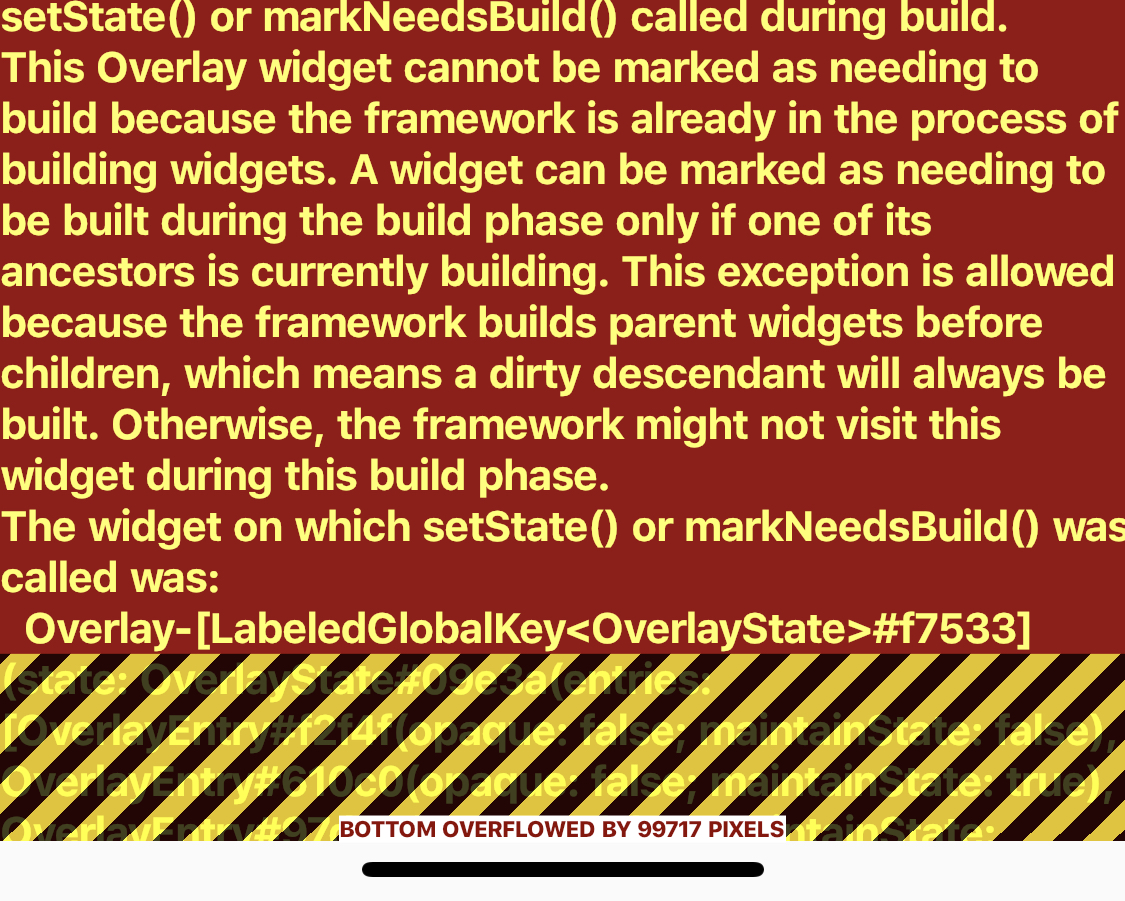In Flutter how would I call Navigator.push when the value of a stream changes? I have tried the code below but get an error.
StreamBuilder(
stream: bloc.streamValue,
builder: (BuildContext context, AsyncSnapshot<int> snapshot) {
if (snapshot.hasData && snapshot.data == 1) {
Navigator.push(
context,
MaterialPageRoute(builder: (context) => SomeNewScreen()),
);
}
return Text("");
});

